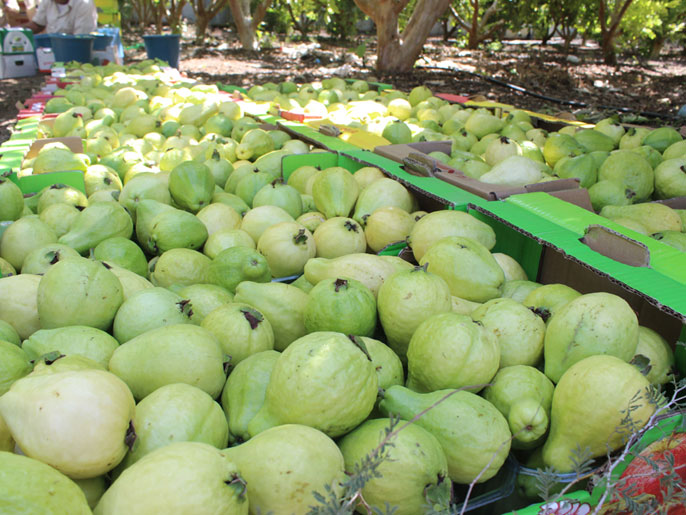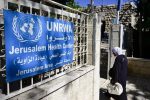More than 800 families in Qalqilya province have embarked on reaping the fruits of guava with the hope that they will achieve satisfactory profits despite the effects of the coronavirus pandemic on the markets. Guava is known as the “pampered Qalqilya fruit.”
The name Qalqilya is associated with the guavas that the city is proud of planting and it decorates the outskirts of its streets especially those types of guavas for which Qalqilya is famous namely Al-Ghubra Al-Shatat and Al-Masria. At this time of the year you are dazzled by the sight of the orchards scattered everywhere or the vendors who display their produce of guava on the outskirts of the streets.
The guava fruit harvest season extends for almost two months starting at the end of August and ending at the end of October of each year. The season goes beyond its economic benefits in terms of heritage and other aspects related to identity and land.
Unlike every year the joy of the guava season was affected by the coronavirus pandemic. As the annual guava festival which is held by the city was canceled this year due to the pandemic. Farmer Ali Nofal hopes that there will be no more negative effects and that the season will not be affected by the low purchasing power of citizens these days.
Nofal told the PIC correspondent “We are afraid that we will suffer a setback in marketing as people are barely managing their basic needs these days coronavirus has hit the economy and if we do not get fair prices we will suffer big losses”.
There are many reasons why Qalqilya is distinguished with this fruit from other provinces. Nofal explained that this is due to many factors including the high temperature and humidity the abundance of its water and its fertile soil as Qalqilya has inherited the cultivation of this fruit for more than fifty years.
Muhammad Qutqat the director of the Qalqilya Chamber of Commerce Industry and Agriculture estimated the volume of production expected for this year 2020 to be around 9000 tons which would yield almost 17 million dollars in profits.
He added that usually a small part of the production is exported annually to Jordan and the majority is sold in the local market “which makes us fear the repercussions of the economic hardship on prices”.
Qalqilya province contains (140) thousand guava trees which are distributed over (3500) dunums and the areas planted with guavas increase every year Qutqat indicated.
The farmer Nasser Dawood indicates that the real concern is about marketing as their problem is that the guava fruit spoils quickly after picking it and it cannot bear storage so there must be quick marketing outlets for it.
He added that the best way to help farmers is marketing and export facilitation indicating that export to Jordan is facing difficulties due to the spread of guava cultivation in Jordan in recent years which led to a decrease in the demand for Qalqilya guava.
Dawood also indicated that a portion of Qalqilya lands planted with guavas is located behind the Apartheid Wall. Almost 1000 dunums of guava groves are behind the wall and their follow-up depends on passing through the gates of the Apartheid Wall.












